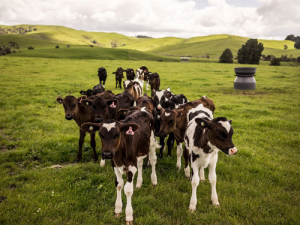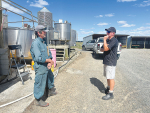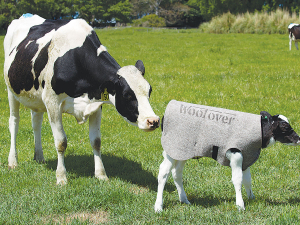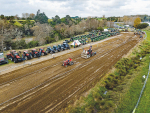But the extra would result from the farm starting mating a week early to accommodate the trial, not because of any inherent benefit of sexed semen.
Figures presented at a recent LUDF Autumn Focus Day revealed that a greater proportion of heifers are now expected to be born, but offset by sexed semen’s lower conception rates.
In the trial, 143 cows were mated early -- 70 to sexed semen and 73 to conventional semen. 44% (31 animals) of the sexed semen cows conceived in the first week, compared with 58% (42 animals) conventional.
Sexed semen was only used in the first week. As mating progressed the sexed-semen group caught up and the two groups showed similar in-calf rates by the end of seven weeks.
In a presentation LUDF said that by using sexed semen an extra eight heifers were now expected from the first week of mating -- 28 from the sexed semen matings versus 20 from the conventional semen. But had the farm not used sexed semen a possible nine further cows may have been in calf at the end of the first week.
“The difference in cost for the straws is roughly $40 x 70 = $2800. Assuming nine fewer cows pregnant from the first round of AB, the cost of missed production is 9 x 21 days x 1.8kgMS/day x $6 = $2041, giving a total increased cost of $4841. When we divide this by the extra eight heifers born, we have an extra cost of $605 per heifer, plus 2% fewer cows in calf in the first three weeks.”
However the costs were offset by the fact that the farm mated a week early to accommodate the trial. The farm would benefit from the extra milk from all 73 cows that conceived in the first week and would now calve three weeks earlier than they would have otherwise.
“LUDF has therefore potentially gained three weeks milk from these animals, at 1.8kgMS/cow/day x $6 x 21 days x 73 = $16,556 gross income achieved by mating these cows earlier than normal.”
“In practice this is a partial system change which may benefit LUDF with its lower stocking rate and increased use of hybrid ryegrass with greater cool-season growth potential.
“Additionally, starting to mate one week earlier allows either a non-hormonal ‘why-wait’ outcome and/or use of longer gestation semen for specific cows without impacting calving pattern.”
Ron Pellow, executive director of the South Island Dairying Development Centre, said LUDF was “really interested” in the opportunity that sexed semen should provide for the industry.
“But it’s only going to work if we can get the cows in calf that we want. If we can used sexed semen and get good replacements out of our top cows then we’ve got more options on the straws that we use on all our other cows.”









